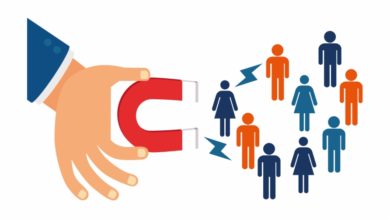6 Benefits of a Document Scanner for Paper Intensive Businesses

Businesses today still relying heavily on paperwork cannot compare with their digital counterparts in a countless number of business edges.
Let the truth be told, handling paper is tedious, irritating and overwhelming to both clients and employees of a business.
The amount of daily paperwork in a contemporary business environment can be immense enough to cause havoc and losses to a business if no stringent measures are put in place to remedy the problem.
This where scanners play a pivotal role. They are machines that have been around for decades but with technological transformations they’ve been elevated to state-of-the-art standards.
They convert traditional hard copies to soft copies to be stored in digital format on flash disks and drives or even blue rays. Digital data and information can be stored on the cloud, which is a service provided by a third-party agent.
Most businesses want to work towards flexibility and simplicity in their business processes. Digitizing content unconditionally fulfills just that goal.
Any business, therefore, is advised to embrace the technology. It is simple to do. Just buy a digital scanner of a type that your business can afford without breaking the bank and your business will be good to go.
Set up a schedule for your staff to begin scanning all new documents as they come in. Later they can begin scanning all existing documents.
As for established business, for them to hit the ground running they will need the latest technologies with all the extras like automatic document feeding.
This way all the daily frustrations that employees have been dealing with will be shelved for good. Productivity is sure to improve as is the norm with digitized environments.
The state-of-the-art technology comes with added functionalities that are useful for any paperwork intensive business. It guarantees the ability to run a seamless operation.
Documents become easily shareable among departments without employees even having to move from their desks.
We’ve listed some more of the benefits below:
1. Better utilization of office space
Scanning of documents allows your business to get rid of the piles of paperwork and transform your way of doing business.
Using the old methods, the huge amounts of paperwork that are generated from every customer transaction creates a need for more and more filing cabinets to store it all. This, in turn, creates a need for extra office space.
If documents are scanned and stored in a digital format on a flash disk or drives, the space required for business operations is reduced significantly. The digitized content is easy to retrieve and disseminate compared to a manual filing system.
2. Cost benefits
It can become challenging for a paper-intensive business to handle large numbers of customers per day because of a build-up of files and the need to generate more every day to back up business transactions.
Large filing cabinets need to be purchased and office space rented to store them all. This all comes at a significant cost. This can be avoided by scanning the business documents and storing them in digital format.
Space can then be reappropriated for more workstations or a smaller space can be leased.
3. Anytime anywhere
The state-of-the-art technology associated with the latest scanners on the market today has a one-touch sharing functionality. This educational video on YouTube will guide you how one-touch sharing works.
This sends scanned documents across multiple mediums and applications enabling employees to work remotely. This is unlike the traditional work environment where employees were required to be physically present during office hours.
They can now meet deadlines from home or from a coffee shop in another country.
4. Data integrity and disaster recovery
One of the risks associated with files, especially files that are critical to the business, is exposure to hazardous conditions such as fires or floods.
Document quality degradation over time is also a problem. Leave a file for one year and the difference is noticeable. Paper is also prone to damage from human activities.
By having it in digital format, you are guaranteed to find the files in the original condition that you saved them in, irrespective of the length of time they’re stored.
When a file is in digital format you can be sure that it will never be misplaced, stolen or accessed by unauthorized individuals. All you need to do is be sure to enforce security integrity to safeguard unauthorized access to the files in the system.
Back up files within the office or on the cloud and you will be sure to find them in the aftermath of a disaster.
5.Improved client-customer satisfaction
In today’s busy world, people find it frustrating to have to wait to get the service they need. The time a customer has to wait before being served largely determines the rate of their satisfaction.
It is even worse if a customer has to wait for a long time because of a missing or misplaced file. Scanning increases customer satisfaction by enabling you to offer fast and efficient service.
It means that data and information can be retrieved in almost half the time.
6. Improved document security and privacy
It is easier to enforce integrity and security features on digital files than it is to secure cabinet files with locks and keys. These can easily be broken into by unauthorized personnel with bad motives.
This leaves a business or organization vulnerable. Intruders can steal files easily with the cabinet filing system as compared to files stored as soft copies which have security integrities put in place.
Access rights and privileges can be enforced to curb the unauthorized editing of digital files.
Conclusion
It is not easy to do away with paperwork entirely. Paperwork has been around for decades and shows few signs of diminishing anytime soon.
Most businesses work with both digital and manual files, a compromise we make to avoid reducing efficiency and effectiveness.
However, measures must be implemented to begin reducing hardcopies and getting as much as possible stored digitally.
This is where digital scanning comes into play.





